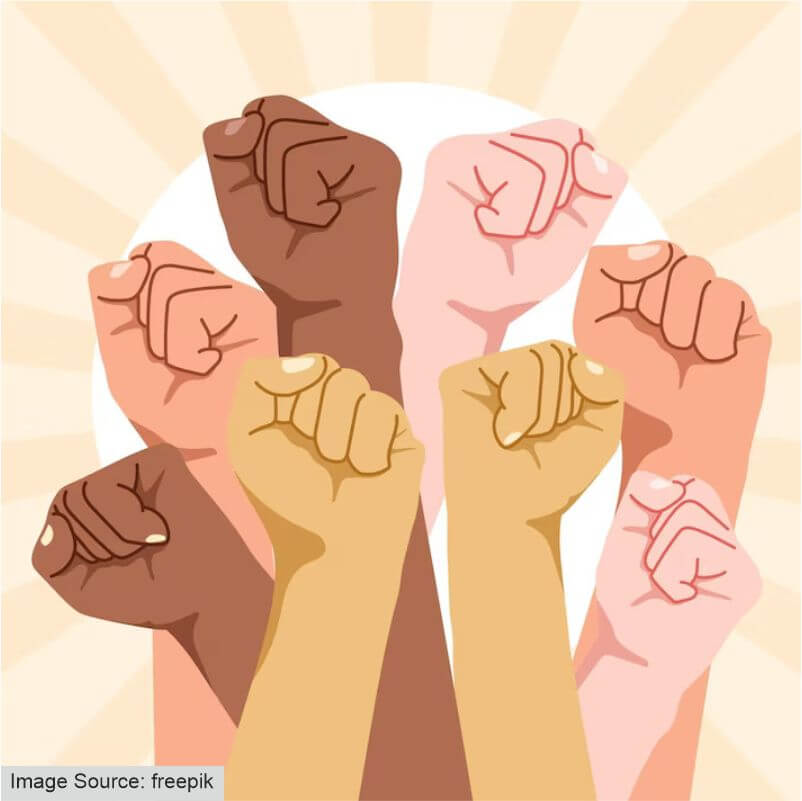In a world where diversity should be celebrated and differences embraced, discrimination remains a prevalent issue. Discrimination can take many forms, whether it's based on race, gender, sexual orientation, disability, or any other characteristic. However, there is hope and a collective effort to combat discrimination and promote equality. One such initiative is Zero Discrimination Day. It's a day dedicated to raising awareness and fostering a world free from discrimination of any kind.
Origin of Zero Discrimination Da
Zero Discrimination Day was first observed by the United Nations on March 1st, 2014. The day was established to promote diversity, tolerance, and inclusion while challenging discrimination and inequalities globally. It serves as a reminder of the universal right to live free from discrimination and stigma.
Why Zero Discrimination Day Matters?

Discrimination not only harms individuals. It also undermines social cohesion, economic development, and human rights. It perpetuates inequality, exclusion, and marginalization, hindering progress towards a more just and equitable society. Zero Discrimination Day catalyzes change, urging individuals, communities, and governments to take action against discrimination in all its forms.
The Theme of Zero Discrimination Day 2024
The focus of Zero Discrimination Day 2024 is “to protect everyone's health, protect everyone's rights.”This theme underscores the crucial connection between upholding human rights and promoting public health to reach the objective of eradicating AIDS by 2030.
Actions to Combat Discrimination on Zero Discrimination Day
On Zero Discrimination Day, individuals and organizations are encouraged to engage in acts of kindness, empathy, and solidarity. It is essential to challenge stereotypes, prejudices, and discriminatory practices.
Here are some of the ways to combat discrimination:
- Educate: Organize educational workshops, seminars, or webinars to raise awareness about various forms of discrimination and their impact on individuals and communities.
- Advocate: Encourage individuals and organizations to speak out against discrimination. Advocate for policies that promote equality and inclusion.
- Support: Offer support to those who have experienced discrimination by providing resources such as counselling services, legal assistance, or community support groups.
- Celebrate diversity: Hold events that celebrate diversity and promote cultural understanding, such as multicultural festivals, art exhibitions, or film screenings.
- Take a stand: Encourage people to take a stand against discrimination in their everyday lives by challenging stereotypes, speaking up against injustice, and promoting acceptance and respect for all.
- Promote inclusive policies: Advocate for the implementation of inclusive policies and practices in workplaces, schools, healthcare settings, and other institutions to ensure equal opportunities and treatment for all.
- Foster empathy: Encourage empathy and understanding by sharing stories and experiences of discrimination and its impact on individuals and communities.
- Empower marginalized communities: Support initiatives that empower marginalized communities to overcome discrimination and achieve equality such as providing access to education, healthcare, employment opportunities, and social services.
Promoting Diversity and Inclusion
Building a world free from discrimination requires collective efforts at all levels of society. It involves promoting diversity and inclusion in workplaces, schools, healthcare systems, and public spaces. Embracing diversity enriches communities and fosters a sense of belonging for all individuals. By creating inclusive environments, we can create a more equitable and harmonious society.
Zero Discrimination Day serves as a powerful reminder of the importance of embracing diversity, promoting inclusivity, and challenging discrimination. It calls upon individuals, communities, and governments to stand united in the fight for equality and justice. By working together, we can create a world where everyone is treated with dignity, respect, and fairness.
Filaantro recognizes the challenges faced by the underprivileged. The organization, along with Child Help Foundation has adopted SDGs 3 (Good Health and Well-Being), 4 (Quality Education), 6 (Clean Water and Sanitation), 5 (Gender Equality), 2 (Zero Hunger), 11, 13 &17 (Humanitarian Relief), 15 (Life on Land), 14 (Life Below Water) and 8 & 10 (Decent Work and Economic Growth & Reduce Inequality) by the United Nations and has positively impacted the lives of 46, 58,052 people.
